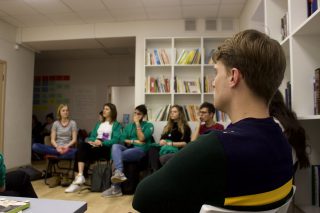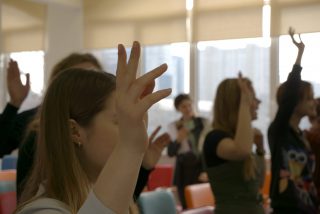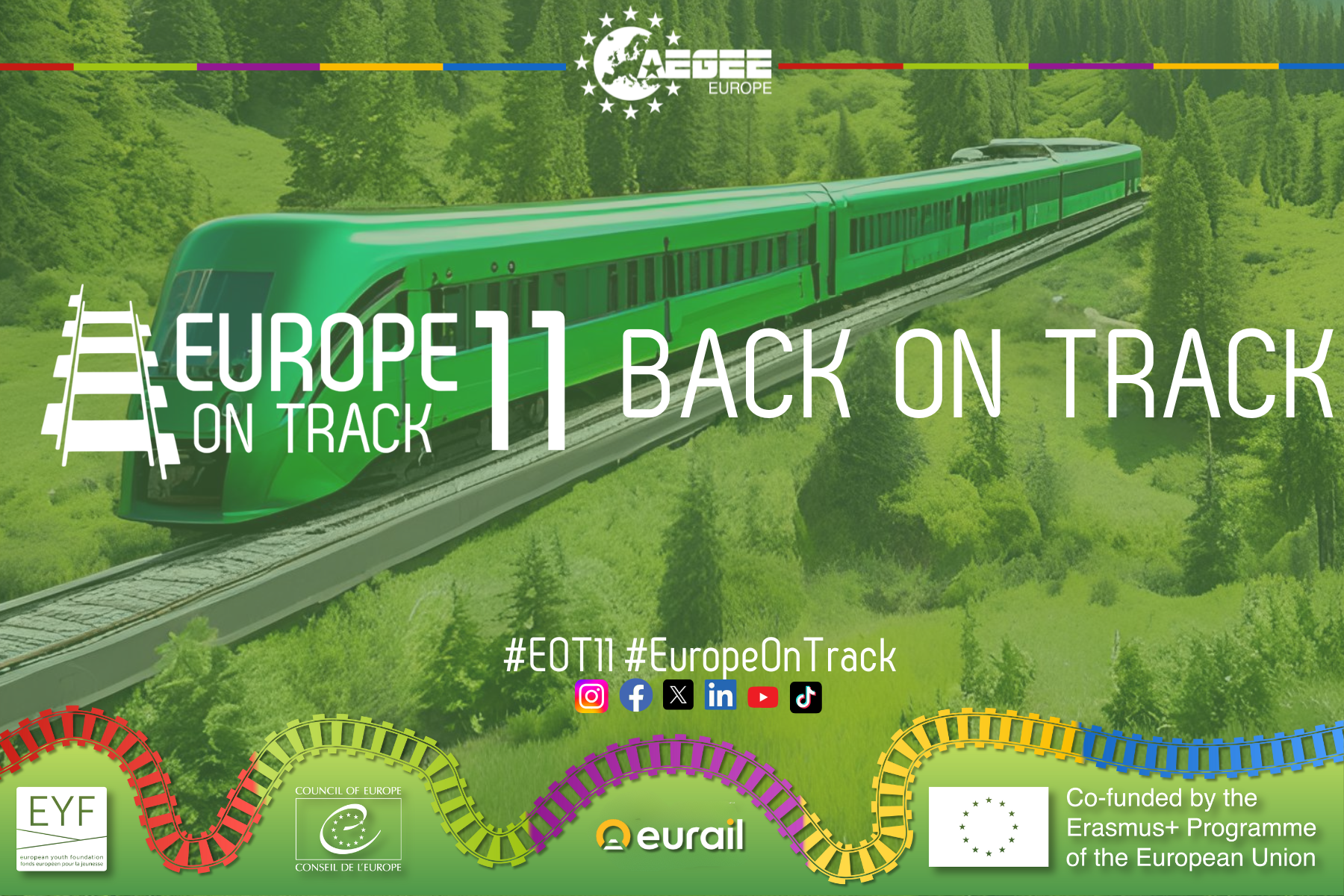Each year, Europe on Track selects a number of ambassadors who provide workshops for youth across Europe, create a space for discussion and gather youth’s input on important social topics. The topic of this year’s edition is “Social inclusion: from gender equality to mental health”. What does this entail? And how are we engaging hundreds of young Europeans through an online project?
Training our ambassadors
MOSCOW: At the beginning of March, the Europe on Track 7 team finally met in person in the Russian capital, after months of online communication. The five of ambassadors (Gasia, Davide, Andrea, Iskander and Anne-Sophie) were together around the clock for nearly two weeks: from breakfast in the early morning hours, to extensive workshops and training sessions on gender equality and mental health, to team building activities to end our days. We ate together, learned together, prepared and delivered workshops together. Soon, we became a unit, a tight-knit team.
We participated in the HerMainY training along with a group of international participants from AEGEE. HerMainY, which is an AEGEE-Europe project, addresses gender mainstreaming in youth organisations like AEGEE, with a focus on communication. Aside from gaining a theoretical background on the topic, we engaged in open dialogue and learned techniques enabling gender-sensitive discourse in non-formal education. The mental health training, which we received in parallel, was provided by our content managers, Alejandra and Leonie.

Gender Equality and Mental Health in Moscow
During the training days, the local organisers from AEGEE-Moskva introduced us to their city, and organised events where we gave our first workshops. The first event was ‘Social Inclusion: Include Yourself’ and was held at a colourful co-working space, ‘Dushevnaya Moskva’. Here, Team Red facilitated a 30-minute mini workshop on Mental Health and Gender. The event additionally included sessions provided by other volunteering organisations and professionals, and was attended by a diverse group of participants.
While the World Health Organization states that Mental Health has traditionally been an area of low Priority in Russia, the majority of workshop participants expressed that mental health is ‘as important as physical health’. One participant, Arina Gurina, 20, further elaborated, saying the two are ‘interconnected’. To bridge the language barrier, AEGEE-Moskva had arranged interpreters who volunteered for the event.
Later that week, Team Blue facilitated a workshop on mental health for AEGEE-Moskva members. During this session, participants were asked to brainstorm what their perception of mental health is and what influences it. Together, we discussed ways of protecting our mental health in relation to circumstances affecting it. The format we use for our workshops is mainly interactive, and relies on the contribution of participants and their ideas. This fulfills one of the main aims of Europe on Track, which is dialogue and engaging youth.

From offline to online
Due to the COVID-19 pandemic, which was announced during our training in Moscow, Europe on Track 7 has moved to an online format. What does this mean for the project? Team Red, Team Blue and the project team have joined forces to deliver twenty online workshops on Gender Equality and Mental Health. The online workshops take place between the end of March and the end of April and are each hosted by a different AEGEE-local. Moreover, all workshops are open to AEGEEans from any local as well as non-AEGEEans. Through these online ‘stops’, we are currently involving hundreds of young Europeans in the topic of social inclusion. We would like to thank all the participants that have taken part in our sessions so far. We have been overwhelmed by the response we’ve received, and we thank you all for your input and feedback.
Europe on Track is part of the HerMainY project, which is funded by the European Youth Foundation of the Council of Europe. We also want to extend our thanks to Sylvia Ivanova, Deputy Head of the European Youth Foundation, personally for being present at one of our joint sessions with HerMainY in Moscow. It is this personal contact and involvement that makes cooperation with EYF unique. We also want to thank Interrail for their long term partnership with our project and supporting our love of trains. Although we didn’t manage to use our Interrail passes for this edition, we are excited to see the project working intensively with Interrail again next year.
